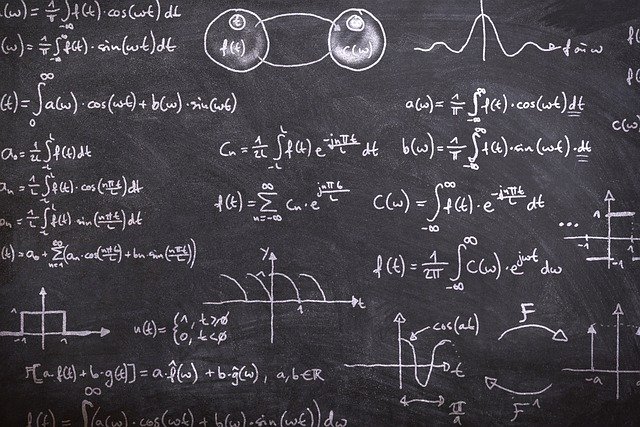What can you learn about sports betting in the classroom?
Image by athree23 from Pixabay
Would you believe if I told you you’ve been learning about sports betting right from your time in the classroom?
Yes, you read that correctly.
Although it probably never occurred to you at the time how some of the things that “nagging man in a tie” used to say relate with sports betting, this guide will refresh your memory and prove to you that your classroom knowledge and your new-found hobby are actually born of the same world
The beginning of schooling
From as little as four, five, and six years, kids were already put through the basics of one of the fundamental disciplines of schooling – mathematics. At that stage, we were already taught things like numbering, addition, subtraction, division, multiplication, fraction, and decimal.
Ironically, that knowledge happens to be the basics of all sports betting escapades.
For example, knowledge of fractions, percentages, and decimals are essential to understanding how “how betting odds work.” Without this knowledge, it might be difficult for someone to understand how odds variations (fractional, decimal, and Moneyline) work, let alone converting from one odd system to another.
You were taught probability
Once you were past the stage of understanding how basic math operations worked, you were introduced to probability.
This aspect of the discipline taught you how to deal with “precarious situations,” “how to make calculative guesses,” and “how to quantify the chances of an event happening.”
And as we both know, everything you do in sports betting today is based on “probability” – that is, how likely it is for an event to happen or not to happen.
As a bettor, your aim is to assess the outcome probability (odds) provided by a bookmaker, produce their own outcome probability, and bet when they find discrepancies that provide positive expected value – while most of that process requires advanced knowledge, it would be impossible without understanding the basics of probability.
Algebraic functions were a big thing back then
Remember those times you were introduced to functions and equations back in early school?
Well, that knowledge is what you need to evaluate your betting chances.
For example, when it comes to estimating the “valueness” of a bet, bettors would often rely on expressions like:
Expected Value = (profit per bet x probability of winning in decimals) – (loss per bet x probability of losing in decimals).
While this whole estimation may now seem like a bread and butter thing for you, it would have been impossible if you hadn’t understood how equations like this {5x – 3y = 7; find y, when x=2} worked.
Don’t know how to estimate the “expected value” of a bet? Brush up on your algebraic function knowledge, check sample calculations on how the above expression works, then go to Sbobet.top sports betting to place a value bet and win money. Voila!
Intermediate education
Moving into high school, students were gradually introduced to concepts like randomness, logical reasoning, probability theory, and several statistics-related concepts like standard deviation, variance, and regression analysis.
Poisson distribution (calculating the probability of variable outcomes using mean averages) is commonly used by more advanced bettors as it can help predict the score in a soccer match (as well as other uses). Although it may appear to be a complicated concept, Poisson distribution is normally taught to students at around 15-16 years of age – it may not be in the context of betting, but it’s still the same theory.
Advancing into college
Although not everyone chooses to further their education to the university level, there are so many courses and disciplines that can help sports bettors make better decisions.
For example, courses in psychology can help bettors better understand the forms and streaks of teams before betting on them. Also, courses relating to financial trading (although not directly linked to betting) can help bettors hone the relevant betting skills like “how to assess risks,” “money management,” and “how to buy odds at what is believed to be a good price.”
A Probability and Statistics degree would undoubtedly help anyone trying to make money from betting. This level of education will help bettors with building models to predict future events using past outcomes (the crux of betting) as well as test their level of skill.
Uday Tank is a serial entrepreneur and content marketing leader who serves the international community at Rankwisely. He enjoys writing, including marketing, productivity, business, health, diversity, and management.

